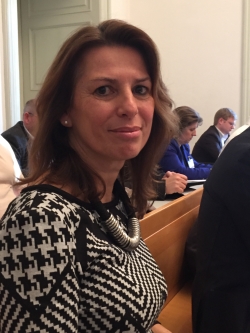Dear Readers,
In this February issue of Jusletter IT, a forum is traditionally offered for the - now already 15th - International Legal Informatics Symposion IRIS 2012 (University of Salzburg / Vienna University). The electronic dissemination of scientific and practical results should be supported in the international legal informatics community with a particular focus to those in German speaking countries. The printed proceedings will be published with books@ocg.at, the publishing branch of the OCG. Editors of this Jusletters IT and the main editors and Walter Hötzendorfer who kindly acts for this Jusletter IT as a guest editor.
IRIS is interdisciplinary, international and multilingual. This edition contains besides the moto "transformation of legal languages" the following themes:
- Theory of legal informatics
- Legal information & search technologies
- Legal informatics systems & applications
- Knowlege-based process management in administrative networks
- E-Government
- Open Government
- E-Democracy
- E-Law-making
- E-Justice & e-CODEX
- E-Procurement
- IT-Compliance and E-Discovery
- Legal theory
- Legal visualisation (multisensory law)
- Informatics Law
- Electronic identities
- Internet Governance
- Data protection
- SMART-Workshop: Surveillance Technologies and Privacy
- E-Commerce
- Copyright law
- Innovation in legal informatics
- Science Fiction and utopia
On the general topic:
The law has still primarily a linguistic representation and it is especially communicating with language. This is changing, and the representation becomes more multi-layered, both in terms of the form (text corpus as a legal information system, citizens portals, formalization, structure, images, graphics, input forms, etc.) as well as the legal regime (international law, EU law, national law, etc.). A linguistic transformation takes place in the concretization of general norms by practice and courts. The multilingualism of EU law requires a transformation between official languages, using more and more IT support. The law becomes multi-layered and multi-sensory: To the language with its different language versions are added pictures, videos, graphics etc. but also semantic, automatically processed versions (legal ontologies, logical structures, etc.). This diversity makes it possible to reach all population groups and to support semantic processing of content.
The variety of other topics is best captured by reading the leads or the contributions. Internet governance is after 10 years again strongly represented. The unease with the possibilities of data collection and analysis is properly represented in the papers of the workshops on data protection and on surveillance and privacy. The "meadow" of legal informatics should finally get greater practical relevance, therefore, the focus on innovations in legal informatics is very welcome. E-Government, E-Justice & E-Democracy have long been a core topic of IRIS. This year, a highlight is the presentation of e-CODEX results (e-Justice Communication via Online Data Exchange). Thus, the access for citizens and companies to cross-border judicial procedures and the cross-border interoperability between national judicial authorities should be improved.
Having said this, we hope you enjoy reading this issue!
Erich Schweighofer, Franz Kummer und Walter Hötzendorfer











 Jusletter IT
Jusletter IT